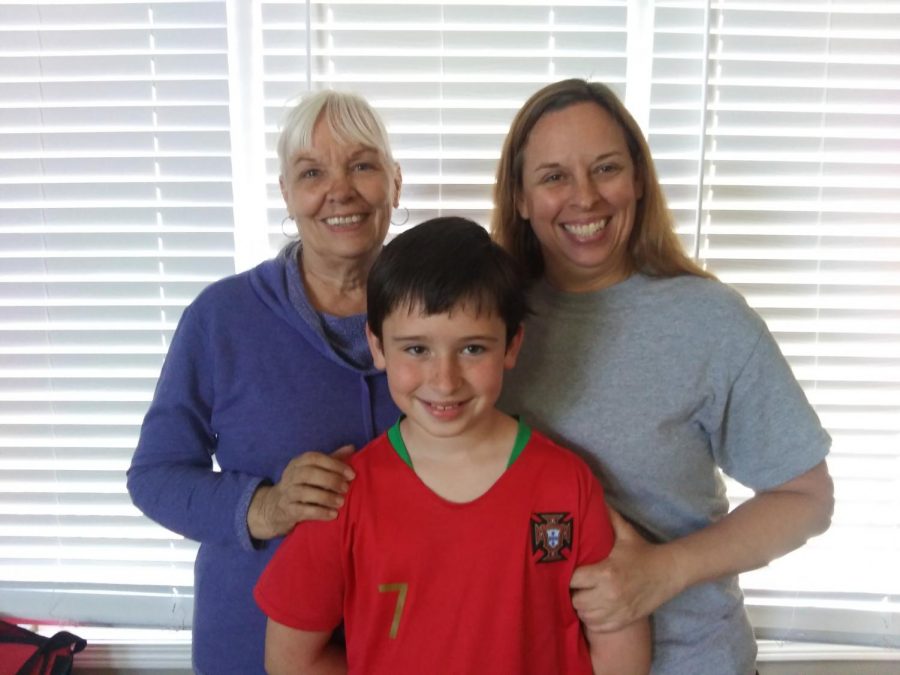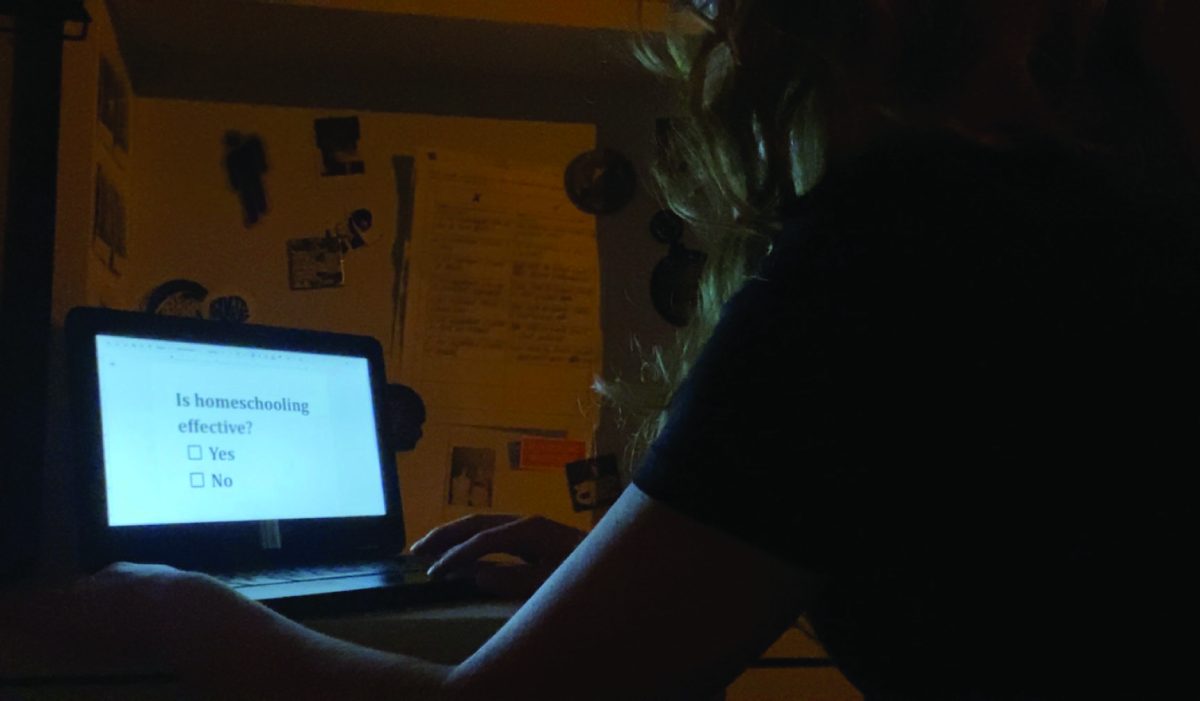The stormy journey to Nebraska: Angelea Rice’s passion for teaching outshined her treacherous obstacles
May 18, 2021
New city. New school. New students. Moving to a new school is challenging for both students and teachers, but Lincoln Southeast High School’s (LSE) newest face in the English department moved 1,154 miles from Panama City Beach, Florida all the way to Lincoln, Nebraska. Despite the obstacles she faced throughout her journey to Nebraska, her passion for education always stayed by her side.
Though her move from Florida seems daunting, moving isn’t anything new to Angelea Rice. Rice was born across the world in Frankfurt, Germany, but she and her family moved to the United States (U.S.) before she was one year old. Her move to the U.S. wasn’t the last time she would move throughout her life.
“[I] lived in Iowa, Ohio, Nebraska, North Carolina, New Jersey, Alabama, and Florida,” Rice said.
The circumstances may have been different for each move, but her journey to different states when she was younger was for one reason. Rice is an “army brat.” The Merriam-Webster Dictionary defines an army brat as “the child of an officer or an enlisted person in the army.” Rice’s father was serving the country when she was growing up.
Moving played a big part in her journey, but her passion to teach others shaped her into who she is now. Rice had always had an interest in becoming a teacher of some sort.
“I have always been drawn to teach others, whether it be being a trainer for new employees or playing school teacher with my stuffed animals and dolls when I was a little kid,” Rice said.
Rice is currently an English teacher for freshmen and sophomores at LSE. When she was teaching in Florida at two schools called Arnold High School and Bay High School – both located in Panama City Beach, she taught each grade in high school. Though the high school setting in Lincoln may be a bit different for Rice, she always taught English.
Her passion for teaching correlated with her interest in English as a subject, leading her to the career path of education.
“I always liked being creative in writing and enveloping myself in the worlds and information that books open for you,” Rice said.
Rice said that all of the schools she has taught at have their similarities and differences.
At her past schools, Rice encountered students with many personal issues and financial struggles. Sometimes, Rice had to find ways to get to know her students outside of school-related topics, but no matter where she taught, she has always enjoyed her time with students.
“[Students] growing up around the saltwater and a tourist town vs. not [can have an impact], but students are generally the same as they are individuals. [I] find ways to connect to them in their various experiences and struggles in life,” Rice said.
Everyone has been affected by the COVID-19 pandemic in one way or another. For Rice and her move to Nebraska, she found it difficult to get to know all of her students, especially those who were full-time remote learning students. She also found getting her state teacher license difficult to transfer over to Nebraska because she didn’t get her teaching degree in the state. Rice had a few bumps in the road, but she had a great foundation of people helping her out.
“[I] had lots of amazing support and welcoming from staff and students,” Rice said. “When you face challenges together, there is a bond that is formed because of the challenges having to be faced together.”
Rice’s journey to the midwest is no doubt a big move, especially when moving to a completely different region of culture, people and weather. Hurricanes are no stranger to those who live in the southern U.S. In 2018, a devastating hurricane named Hurricane Michael hit the Florida panhandle, the place where Rice and her family previously lived. According to the National Weather Service, Hurricane Michael made landfall as an unprecedented Category 5 hurricane with maximum sustained wind
speeds of 140 knots (161 miles per hour). The hurricane’s winds and storm surge caused catastrophic damage to people living in the Panama City Beach area. According to World Vision, a humanitarian aid organization, the storm caused an estimated amount of 4.5 billion dollars of property damage. Unfortunately, the hurricane affected Rice’s property, and it was one of the factors in her decision to move.
Before the hurricane made landfall in her city, Rice and her family had already been thinking about moving to Nebraska.
“All of my mom’s side of the family lives in Lincoln or Beatrice. She hasn’t lived close to her family for most of my life, and my son and I never lived by a lot of family. I thought it was good for all of us to experience support close by and have family interactions that last longer than a few weeks,” Rice said. “The hurricane was just sort of the last sign to push us this way.”
Fortunately for Rice, her house was one of the luckier ones. Rice believes her house had the most damage in her neighborhood, but definitely not the worst in the community.
“The storm ripped off our chimney and most of the siding on one side of our house. We [also] had a huge oak tree in the backyard that fell to the left,” Rice said. “If [the tree] had fallen backward instead of to the left, there is a very good possibility that me, my son (7 years old at the time), and my mother would have been killed because it would have landed on the closet we were huddled in.”
Fortunately, Rice was not taken away by the horrific storm, but that wasn’t the only time she had been put in a scary position during Hurricane Michael.
“When the storm ripped off our chimney and left a big hole in our roof, the water started pouring in. It started pouring in through the light fixtures, so I quickly found things to catch the water coming down. Then, I went upstairs to see what all we had lost/how extensive the damage was,” Rice said. “I ran downstairs to let my mom and son know that I was fine, and I ran into the garage to get a tarp, some nails, and a hammer. I ran back upstairs into the attic and jumped on a beam to reach the hole in the roof. I tried hammering the tarp in place from inside, but the angle and space made it difficult. I knew it had to be done quickly as the water was still pouring in and the storm was still going.”
Rice could’ve left what she was doing and hid with the rest of her family in the closet they were hiding in, but her bravery drove her into trying to stop the water from destroying what they had left.
“I popped my head/half of my body outside the hole and started hammering the tarp down from the outside. When a big gust of wind would come, I ducked back down and popped back up until almost all of the hole was covered with the tarp. It wasn’t pretty and definitely not my best work, but it did the trick and kept the water out for the duration of the storm,” Rice said.
After the destruction, her experience with the storm led her to help others who were struggling with the outcome of the hurricane. She organized an idea that gave students returning to the school she worked at a school bag with notebooks, paper, pens, pencils and other personal hygiene products on their first day back to school.
“They were hurting at the time and supplies were lacking so much that sometimes they didn’t even have those basic things at home,” Rice said.
Rice’s life has been filled with moving to new states, tropical storms, bravery and caring for others. She has been all over, but not once did her passion for teaching leave her side in the 20 years of being a teacher.
“Teaching, like many other professions, isn’t a job that gets a lot of instant gratitude. We don’t generally see what most of our students become that we taught along the years,” Rice said. “We very rarely know or realize what impact we ultimately had on our students and to get brief glimpses at that reaffirms why we do what we do.”










